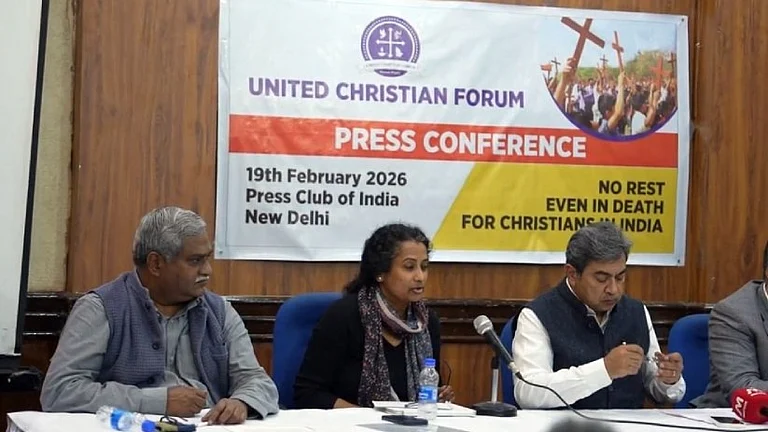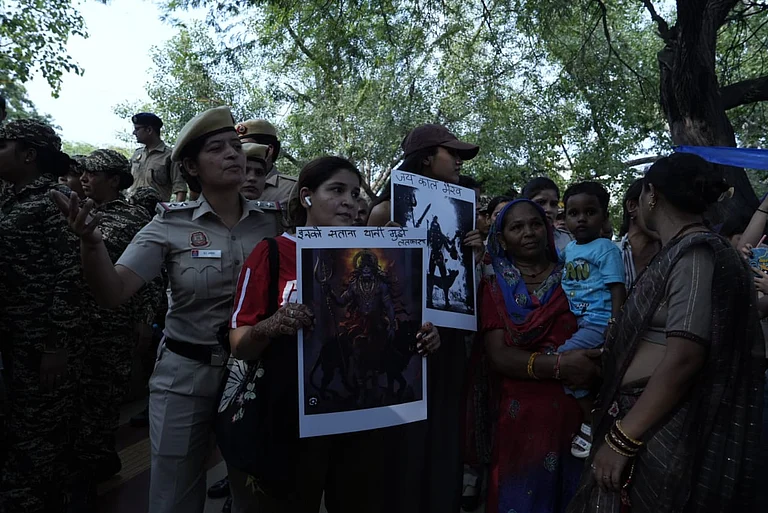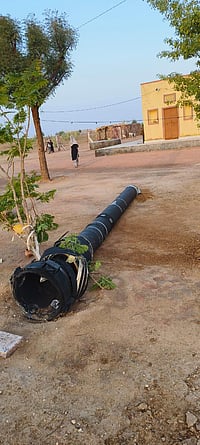
1. The Rajasthan Department of Local Bodies has issued fresh directives to all Urban Local Bodies (ULBs) regarding the State’s policy on dog population management.
2. As per the order, Municipal bodies must identify, construct, and maintain dog shelters, provide facilities for neutering, vaccination, and deworming, and install CCTV cameras in operating theatres and dog shelters.
3. No dog below six months of age shall be sterilised. ULBs must ensure pre-operative veterinary fitness and post-operative care in line with the ABC Rules, 2023.
Rajasthan has become the first State in the country to issue detailed guidelines for the systematic management of stray dogs, following the Supreme Court’s directive.
Referring to the Supreme Court’s order dated August 22, 2025 and the Animal Birth Control (ABC) Rules, 2023 and the Supreme Court’s recent directions, the Department of Local Bodies has issued fresh directives to all Urban Local Bodies (ULBs) regarding the State’s policy on dog population management and improving coexistence between the public and community animals.
The order reads, “In each ward/area, designated feeding sites for stray dogs must be identified based on the population of dogs and territorial divisions. Locations will be finalised in consultation with local feeders and residents. A board must be installed at each feeding site”.
As per the order, Municipal bodies must identify, construct, and maintain dog shelters, provide facilities for neutering, vaccination, and deworming, and install CCTV cameras in operating theatres and dog shelters.
Ravi Jain, Secretary, Department of Local Bodies, told Outlook, “ABC--through sterilisation and vaccination--is the only humane and scientific method to regulate dog populations and reduce conflict. It is central to the One Health approach, which recognises the interdependence of human and animal health. These directives are a first, concrete step in our renewed commitment to animal welfare, lawful governance, and safer, kinder cities.”
No dog below six months of age shall be sterilised
Sharing about the measures taken on management of rabid or aggressive dogs, Jain added, “No dog below six months of age shall be sterilised. ULBs must ensure pre-operative veterinary fitness and post-operative care in line with the ABC Rules, 2023. Rabid dogs must be immediately isolated in shelters and kept under veterinary supervision until natural death. Only rabid/aggressive dogs may be removed; healthy ones must be released back after treatment. Records must include: number of dogs, sterilisation, vaccination, treatment, deaths, equipment used, dog van logbooks, staff presence, and three-day CCTV footage”.
On restrictions on catching puppies, the order states, “Puppies under six months cannot be caught or sterilised. Lactating mothers should not be caught until puppies are naturally weaned. After sterilisation and vaccination, dogs must be released in the same locality and feeders must be informed and involved”.
Animal Rights Activists call the order reassuring and inclusive
Issued on International Dog Day, animal rights activists and civil society state that the order is an attempt to institutionalise humane, science-based animal management and foster a culture of coexistence between citizens and community animals.
“The order is not only reassuring for all the animal lovers, but also the involvement of monitoring committees with civil participation, including animal welfare activists/organisations constituted under the ABC Rules, shall strengthen transparency, oversight, and collaboration. Also, it takes lots of courage and compassion for an administrator to bring these directives into action”, Timmie Kumar, an Animal rights activist, said at a veterinary hospital for street animals, told Outlook.
“I hope as the order states, all municipal bodies shall brief field teams, and coordinate with veterinary officers and recognised animal welfare organisations for time-bound implementation”, Kumar, who runs Help in Suffering, added.
The order also mentions that trained dog catchers should be employed, and Dogs must be caught using nets or by hand, not by harmful methods like nooses, sticks, or other cruel instruments. As per AWBI letter dated 05-04-2022, rates are fixed at ₹200 for catching and ₹1450 for sterilisation, feeding, and post-operative care.
The order strictly mandates that the municipal body form a monitoring committee that meets regularly to review the implementation of the ABC program. If any violation of the ABC Rules, 2023, is found, it will be dealt with strictly in accordance with Rule 18.
Last week, Jaipur witnessed a series of protests, where hundreds of animal activists, pet lovers and NGOs came together after the Supreme Court and Rajasthan High Court directed the removal of stray dogs. Protesters were demanding that the government focus on sterilisation and vaccination, instead of shifting them.






























